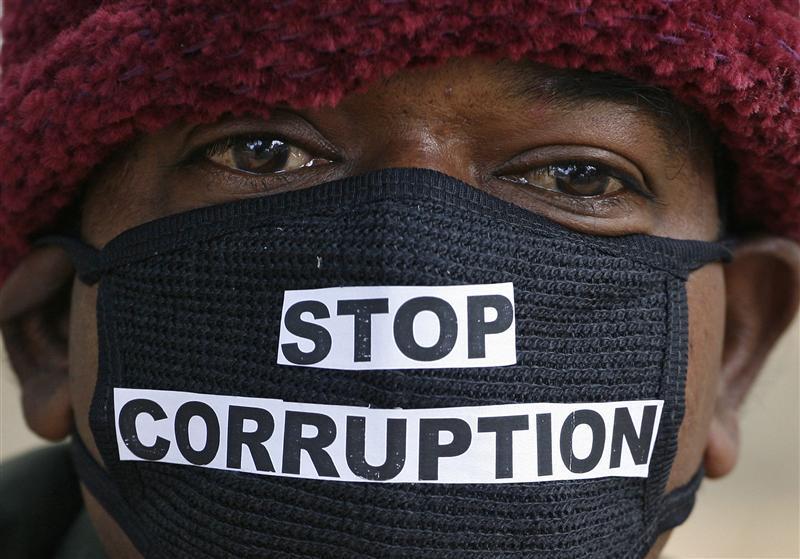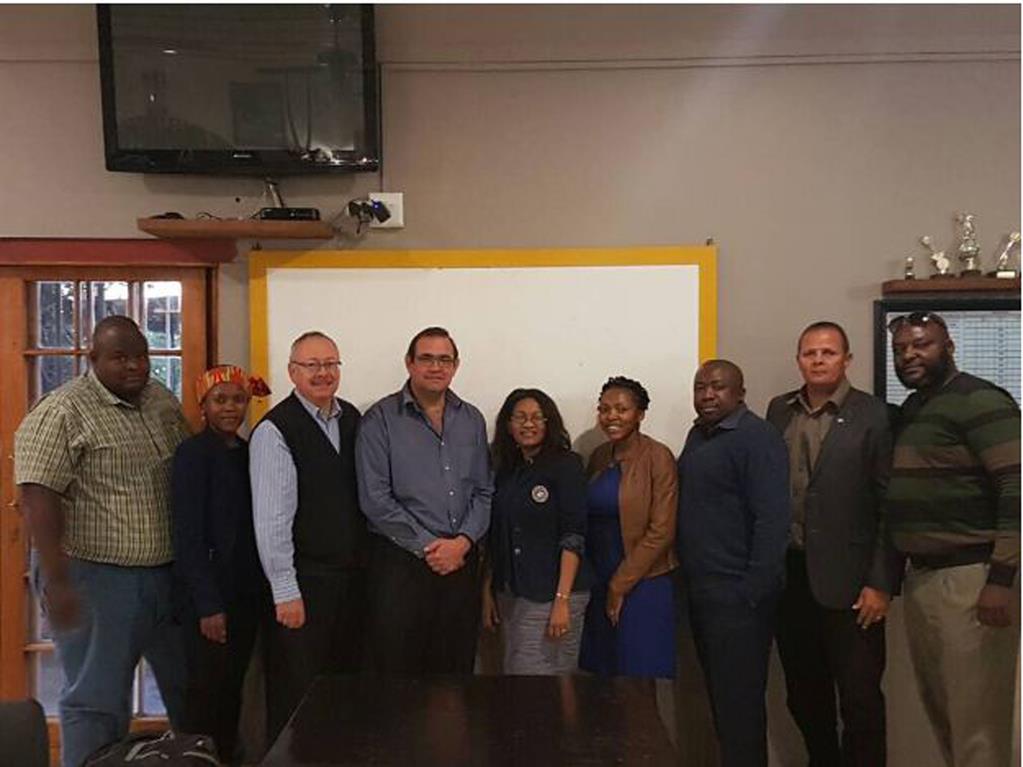State capture: Namibia has fallen victim
Certified fraud examiners in Namibia say the public is inadequately informed about the risk of state capture in the country.
Jo-Maré Duddy – 36% of certified fraud examiners in Namibia is convinced that Namibia has “definitely” fallen victim to state capture, while 50% believe it might be the case.
These are some of the results of a poll conducted by the Association of Certified Fraud Examiners (ACFE) among its members in Namibia. The ACFE is the world’s largest fraud risk management organisation.
According to the World Bank, state capture can be defined as “the efforts of a small number of firms (or such groups as the military, ethnic groups and kleptocratic politicians) to shape the rules of the game to their advantage through illicit, non-transparent provision of private gains to public officials”.
Transparency International (TI) describes state capture as “one of the most pervasive forms of corruption, where companies, institutions or powerful individuals use corruption such as the buying of laws, amendments, decrees or sentences, as well as illegal contributions to political parties and candidates, to influence and shape a country’s policy, legal environment and economy to their own interests”.
The information the Namibian public receives on the risk of state capture is inadequate, all the poll respondents agree: 50% says “very little” information is available, 36% feels “some” information is available and 14% is of the opinion there is “no” information.
The local ACFE poll shows 72% of respondents believe Namibia has below average institutional capacity to mitigate the risk of state capture, while 21% feels its capacity is average. None is of the opinion that the country is fully geared to tackle the problem.
Surveys
Namibia’s score on TI’s Corruption Perception Index during the past five years ranged from 48 to 53. The maximum score of 100 means a country is squeaky clean, while zero means it is highly corrupt. With a score of 52, Namibia was ranked 53rd out of 176 countries worldwide on the index in 2016. The average global score last year was 43, “indicating endemic corruption in a country's public sector”, TI said.
The 2015 Afrobarometer survey showed 63% of Namibians believe corruption has increased over the past year. More than a third said most or all of the police, government officials, and tax officials are corrupt.
Corruption has consistently featured as one of the top ten most problematic factors for doing business in Namibia in the World Economic Forum’s annual Global Competitiveness Index (GCI). In the 2017/18 index it was named the 4th biggest stumbling block.
Although the debate on state capture in Namibia has recently flared up again, the issue is nothing new.
“State capture is an issue of debate in Namibia,” the World Bank said in 2011 in a study, “Ill-gotten money and the economy”. “Critics speak of institutionalised corruption, or legalised corruption, through the laws passed since Namibian independence,” the study states.
High-end corruption in Namibia involves tens of millions of dollars at a minimum, the World Bank said. “There is no empirical research on the spending patterns of these perpetrators and their accomplices and families, but law enforcement officials observe that ill-gotten money is used for the direct acquisition of basic consumer goods, luxury items and lifestyles, cars, and real estate (houses, farms, land).”
According to the local ACFE poll, guarding against state capture is primarily the role of: the government (36%), the ombudsman and the Anti-Corruption Commission (24%), private sector business (16%), civil society organisations (12%), and political parties (12%). Practically, the fight against it can be best fought by: the government (25%), the ombudsman and the ACC (33%), private sector business (13%), civil society organisations (17%), and political parties (12%).
57% of respondents believe certified fraud examiners (CFEs) can play a role in successfully mitigating the risk of state capture, but with many limitations. Only 36% say CFEs can play a major role, while 7% indicated that their role is “very limited”.
These are some of the results of a poll conducted by the Association of Certified Fraud Examiners (ACFE) among its members in Namibia. The ACFE is the world’s largest fraud risk management organisation.
According to the World Bank, state capture can be defined as “the efforts of a small number of firms (or such groups as the military, ethnic groups and kleptocratic politicians) to shape the rules of the game to their advantage through illicit, non-transparent provision of private gains to public officials”.
Transparency International (TI) describes state capture as “one of the most pervasive forms of corruption, where companies, institutions or powerful individuals use corruption such as the buying of laws, amendments, decrees or sentences, as well as illegal contributions to political parties and candidates, to influence and shape a country’s policy, legal environment and economy to their own interests”.
The information the Namibian public receives on the risk of state capture is inadequate, all the poll respondents agree: 50% says “very little” information is available, 36% feels “some” information is available and 14% is of the opinion there is “no” information.
The local ACFE poll shows 72% of respondents believe Namibia has below average institutional capacity to mitigate the risk of state capture, while 21% feels its capacity is average. None is of the opinion that the country is fully geared to tackle the problem.
Surveys
Namibia’s score on TI’s Corruption Perception Index during the past five years ranged from 48 to 53. The maximum score of 100 means a country is squeaky clean, while zero means it is highly corrupt. With a score of 52, Namibia was ranked 53rd out of 176 countries worldwide on the index in 2016. The average global score last year was 43, “indicating endemic corruption in a country's public sector”, TI said.
The 2015 Afrobarometer survey showed 63% of Namibians believe corruption has increased over the past year. More than a third said most or all of the police, government officials, and tax officials are corrupt.
Corruption has consistently featured as one of the top ten most problematic factors for doing business in Namibia in the World Economic Forum’s annual Global Competitiveness Index (GCI). In the 2017/18 index it was named the 4th biggest stumbling block.
Although the debate on state capture in Namibia has recently flared up again, the issue is nothing new.
“State capture is an issue of debate in Namibia,” the World Bank said in 2011 in a study, “Ill-gotten money and the economy”. “Critics speak of institutionalised corruption, or legalised corruption, through the laws passed since Namibian independence,” the study states.
High-end corruption in Namibia involves tens of millions of dollars at a minimum, the World Bank said. “There is no empirical research on the spending patterns of these perpetrators and their accomplices and families, but law enforcement officials observe that ill-gotten money is used for the direct acquisition of basic consumer goods, luxury items and lifestyles, cars, and real estate (houses, farms, land).”
According to the local ACFE poll, guarding against state capture is primarily the role of: the government (36%), the ombudsman and the Anti-Corruption Commission (24%), private sector business (16%), civil society organisations (12%), and political parties (12%). Practically, the fight against it can be best fought by: the government (25%), the ombudsman and the ACC (33%), private sector business (13%), civil society organisations (17%), and political parties (12%).
57% of respondents believe certified fraud examiners (CFEs) can play a role in successfully mitigating the risk of state capture, but with many limitations. Only 36% say CFEs can play a major role, while 7% indicated that their role is “very limited”.






Kommentar
Allgemeine Zeitung
Zu diesem Artikel wurden keine Kommentare hinterlassen